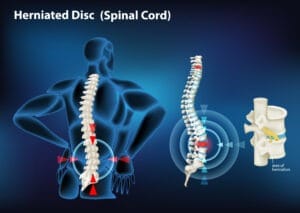AMH, or Anti-Müllerian Hormone, is a hormone produced by the tiny follicles in a woman’s ovaries. This hormone plays a key role in indicating a woman’s ovarian reserve, which means the number and quality of eggs left in her ovaries. If AMH levels are low, it can signal certain reproductive challenges, especially for women who are planning to conceive. This article will explain the symptoms of low AMH, what causes it, and what steps women can take to address it.
Understanding the symptoms of low AMH is important for women to take proactive measures about their fertility and overall reproductive health.
What Is AMH, and Why Is It Important?
Anti-Müllerian Hormone (AMH) is produced by the small follicles in the ovaries that contain immature eggs. Unlike other fertility-related hormones that fluctuate throughout the menstrual cycle, AMH levels remain steady and provide a consistent measure of ovarian reserve. Doctors often use AMH tests to assess a woman’s fertility potential.
A low AMH level can indicate that a woman has fewer eggs left. While this does not necessarily mean a woman cannot conceive, it can make the process of getting pregnant more difficult. Women are born with a limited number of eggs, and this number decreases as they age. Understanding your AMH levels can give valuable insights into your reproductive health and help you plan for the future.
Symptoms of Low AMH
One challenge with low AMH levels is that they often do not cause noticeable symptoms. However some signs may suggest a woman has low ovarian reserve. Let us take a closer look at the common symptoms of low AMH:
1. Irregular or Missed Periods

One of the main symptoms of low AMH is irregular menstrual cycles. If the ovarian reserve is low, ovulation may not occur regularly leading to missed or irregular periods. For example, if your periods become unpredictable and lasting more than 35 days or occurring less than 21 days apart—this could be a sign that your ovarian reserve is decreasing.
2. Difficulty Getting Pregnant

Struggling to conceive is one of the most common symptoms of low AMH. If you have been trying to get pregnant for a year or more without success or for six months if you are over 35, it might be due to low ovarian reserve. Low AMH levels can affect the quantity and quality of eggs, which are crucial for successful fertilization and implantation.
3. Shorter Menstrual Cycles
Another symptom of low AMH is having shorter menstrual cycles, often lasting less than 21 days. This happens because the time between the start of your period and ovulation (the follicular phase) becomes shorter as ovarian reserve declines. For example, if you’ve noticed your cycles are getting consistently shorter, it might be worth discussing this with your doctor.
4. Symptoms of Perimenopause
Symptoms of Low AMH levels can sometimes mimic symptoms of perimenopause, which is the stage before menopause. These symptoms might include:
- Hot flashes
- Night sweats
- Vaginal dryness
- Mood swings
Even if you are not close to menopause, low AMH levels can cause hormonal imbalances that lead to these symptoms. These changes can be confusing for women who may not realize their ovarian reserve is decreasing.
5. Poor Response to Fertility Treatments
Women undergoing fertility treatments like in-vitro fertilization (IVF) may discover they have low AMH if their ovaries produce fewer eggs than expected during stimulation. This is often one of the clearest symptoms of low AMH.
Causes of Low AMH
There are several reasons why a woman might have low AMH levels. Understanding these causes can help you take steps to manage your reproductive health.
1. Age
Age is the most common cause of low AMH levels. Women are born with all the eggs they will ever have, and this supply decreases over time. By the late 30s and early 40s, AMH levels naturally decline, reducing the ovarian reserve.
2. Genetic Factors
Some women may have a genetic tendency toward low AMH levels. Conditions like Turner syndrome or Fragile X syndrome can impact the number of eggs in the ovaries.
3. Medical Conditions
Certain medical conditions can also lead to low AMH. Endometriosis, polycystic ovary syndrome (PCOS), autoimmune disorders, or pelvic infections can all impact ovarian function. Additionally, treatments like chemotherapy or radiation for cancer can significantly reduce ovarian reserve.
4. Unhealthy Lifestyle
Lifestyle factors like smoking, an unhealthy diet or chronic stress can harm ovarian health. Smoking especially accelerates egg loss and reduces AMH levels. Adopting a healthy lifestyle is crucial for protecting fertility.
How Is Low AMH Diagnosed?
The most reliable way to diagnose low AMH is through a blood test that measures Anti-Müllerian Hormone levels. This test can be done at any time during the menstrual cycle since AMH levels remain stable. Here’s how the results are generally interpreted:
- High AMH: Indicates a good ovarian reserve (common in younger women or those with PCOS).
- Normal AMH: Suggests a healthy ovarian reserve.
- Low AMH: Suggests diminished ovarian reserve.
It is important to remember that low AMH does not mean you cannot get pregnant. Many other factors such as the health of the uterus and fallopian tubes also play a role in fertility.
Managing Low AMH
If you have been diagnosed with low AMH, there are several steps you can take to improve your chances of conceiving or preserving your fertility. Let’s explore some of these options:
1. Adopt a Healthy Lifestyle
Making positive changes to your lifestyle can improve your overall reproductive health. Here are a few tips:
- Quit Smoking: Smoking accelerates egg loss, so quitting can help preserve ovarian reserve.
- Eat a Balanced Diet: Include foods rich in antioxidants, vitamins, and minerals to support egg quality. Foods like leafy greens, nuts, seeds and fatty fish are excellent choices.
- Manage Stress: Chronic stress can disrupt hormonal balance. Practices like yoga, meditation or even regular walks can help reduce stress levels.
2. Consider Fertility Treatments
Women with low AMH can benefit from fertility treatments such as:
- IVF (In-Vitro Fertilization): This procedure involves retrieving eggs from the ovaries and fertilizing them outside the body. Women with low AMH may require higher doses of medication during IVF to stimulate egg production.
- Egg Freezing: If you’re not ready to have children now, freezing your eggs can preserve your fertility for the future.
- Donor Eggs: Using donor eggs is an option for women with severely diminished ovarian reserve.
3. Supplements and Medications
Certain supplements and medications can help improve ovarian function and egg quality. For instance:
- Coenzyme Q10 (CoQ10): An antioxidant that supports egg health.
- DHEA (Dehydroepiandrosterone): A hormone supplement that may help improve ovarian reserve in some women.
- Vitamin D: Studies suggest that adequate vitamin D levels are important for reproductive health.
4. Regular Medical Checkups
Frequent check ups with a fertility specialist can help track your ovarian reserve and provide guidance on the best options for your specific needs.
Emotional Impact of Low AMH
Knowing that you have low AMH can be emotionally overwhelming. Many women feel anxious, frustrated or even hopeless. It is important to remember that you are not alone and support is available. Talking to a counselor, joining a support group or discussing your concerns with a trusted healthcare provider can help you navigate this journey.
Conclusion
The symptoms of low AMH can be subtle and easy to miss but understanding them is crucial for maintaining reproductive health. Whether it’s irregular periods, difficulty conceiving or symptoms of perimenopause, paying attention to these signs can help you seek medical advice early.
Although low AMH levels can be challenging, they do not mean the end of your fertility journey. With lifestyle changes, fertility treatments and emotional support, many women with low AMH go on to achieve their reproductive goals.
If you’ve noticed symptoms of low AMH such as irregular cycles or difficulty getting pregnant, don’t hesitate to consult a healthcare professional. Early detection and intervention can make all the difference.
Frequently Asked Questions
1. What is considered a low AMH level?
AMH levels below 1.0 ng/mL are generally considered low, but this varies based on age and other factors.
2. Does low AMH mean I can’t get pregnant?
No, low AMH does not mean infertility. It may indicate fewer eggs, but successful pregnancy is still possible with appropriate treatments.
3. Can AMH levels be increased naturally?
While you can’t increase the number of eggs, a healthy lifestyle, supplements like CoQ10, and stress management may improve egg quality.
4. How is AMH tested?
AMH is measured through a simple blood test, which can be done any day of the menstrual cycle.
5. Are there symptoms of low AMH in young women?
Yes, younger women with low AMH may experience irregular cycles, difficulty conceiving, or shorter menstrual cycles.
Images By: FreePik





Pingback: PCOD vs PCOS: Know the Differences & Treatment Options